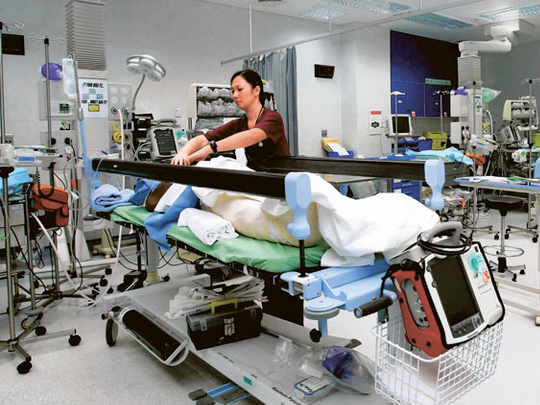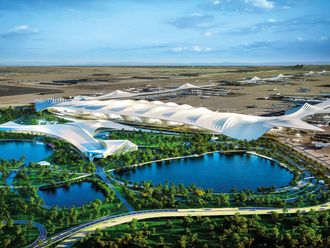
Dubai As the Middle East's population continues to grow, the region has a strong need for new hospitals and stronger primary care, a top executive at a major US healthcare conglomerate said in Dubai Wednesday.
Simon Stevens, who is president of global health at UnitedHealth Group, was in the UAE to announce a strategic alliance between UnitedHealthcare International and Dubai-based Al Sagr National Insurance Company.
He said governments across the world were feeling increased pressure to deliver better services as nations continue to get richer, adding the issue of healthcare in every country was the joint responsibility of the individual, the private sector and the state.
"People look to their governments to help improve the welfare and living conditions of their country. How to respond to those rising needs, particularly at a time of economic pressure, is playing out in different ways," Stevens said.
GCC's unique challenges
"Every country's healthcare system is unique and rightly so; it is not a question of trying to import models from some other part of the globe. The big question is whether there are things that are deemed useful innovations in other parts of the world that could be used to tackle the unique challenges of the GCC countries, including getting serious about preventable health conditions," he added.
According to Stevens, who served as health policy director in former British prime minister Tony Blair's government, if current trends do not change by the end of the decade, 32 per cent of adults in the UAE could have diabetes or its precursor.
"There is clearly a lot of need and diabetes would be a case in point. Obviously, the population is projected to grow and with it, as a result of some of those health trends, there will be more need for modern, high-quality hospitals, and need for stronger, high-quality primary care; that is something a number of governments across the region are paying close attention to and where we have got a lot of experience," he said.
The new alliance between United Healthcare and Al Sagr will see both companies working together to provide local insurance coverage to multinational corporations (MNCs) with staff in Saudi Arabia, the UAE, Jordan, Qatar, Oman, Lebanon, Bahrain and Kuwait.
"It is not an equity relationship but a commitment to our clients, who will be able to make use of the services that Al Sagr has developed," Stevens said.
Unusual alliance
"We think it will develop in other directions over time. It [the alliance] is unusual and probably unique in that what has happened before is multinational companies have had different relationships in each individual country.
"This alliance provides a regional, integrated solution that means if you are an employer with expat workers in the region, you do not need to have separate relationships, claims processes and ID cards [in each country]; it is all integrated into a one-stop shop," he added.












